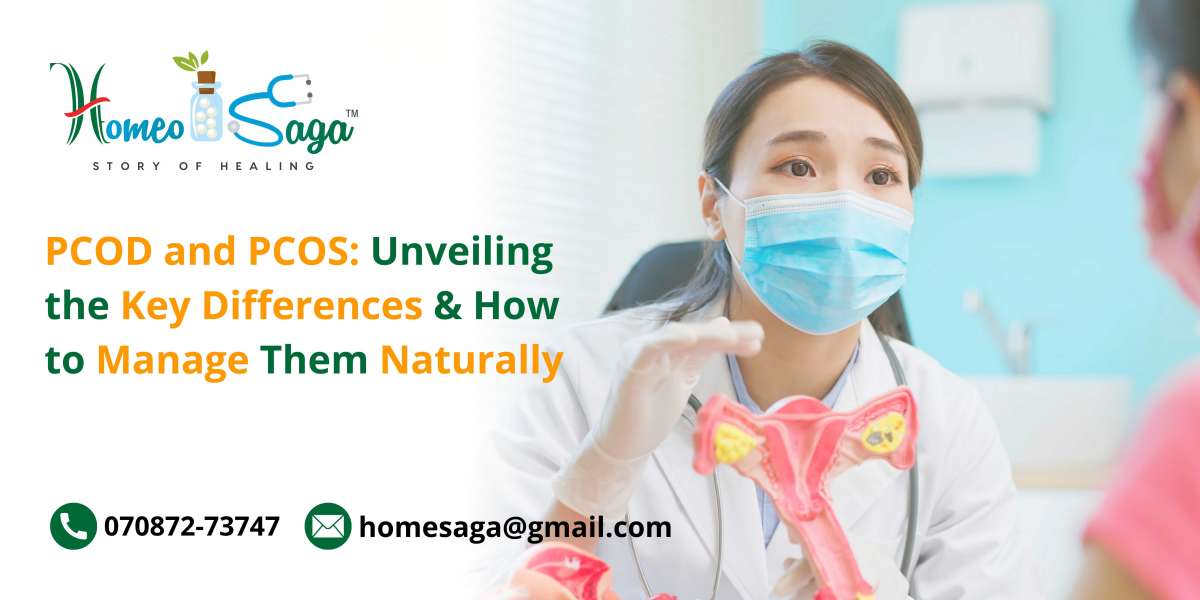Polycystic Ovarian Disease (PCOD) and Polycystic Ovary Syndrome (PCOS) are two terms that often cause confusion, yet they refer to different health conditions that affect many women. Understanding the distinctions between PCOD and PCOS is essential for effective management and treatment. In this article, we will clarify these differences and explore natural strategies for managing both conditions.
What is PCOD?
Polycystic Ovarian Disease (PCOD) is characterized by the formation of multiple small cysts in the ovaries. While it can lead to hormonal imbalances and symptoms such as irregular menstrual cycles and weight gain, PCOD is typically viewed as less severe compared to PCOS. Women with PCOD often have milder symptoms and may not face the same level of long-term health risks.
What is PCOS?
Polycystic Ovary Syndrome (PCOS) is a more complex hormonal disorder that can lead to a range of symptoms, including irregular periods, excessive hair growth (hirsutism), acne, and fertility issues. PCOS is often associated with insulin resistance, which can increase the risk of developing type 2 diabetes and other metabolic disorders. This condition usually presents a broader spectrum of health challenges than PCOD.
Key Differences Between PCOD and PCOS
Hormonal Imbalances: While both conditions involve hormonal changes, the imbalances seen in PCOS are generally more pronounced and can have more significant health consequences.
Cyst Characteristics: Both PCOD and PCOS involve ovarian cysts, but those with PCOS typically have more numerous and larger cysts, which can lead to more severe reproductive health issues.
Metabolic Risks: PCOS is closely linked with metabolic syndrome and insulin resistance, increasing the risk of diabetes and heart disease. PCOD does not usually present these metabolic complications.
Severity of Symptoms: Symptoms of PCOS are often more severe, with issues like significant acne and hirsutism being more common compared to those experienced by women with PCOD.
Natural Management Strategies
Effectively managing both PCOD and PCOS can be achieved through various natural lifestyle modifications.
1. Healthy Eating
A nutritious diet is fundamental for managing symptoms associated with both conditions. Consider the following dietary tips:
- Emphasize Whole Foods: Incorporate a variety of whole grains, fruits, vegetables, and lean proteins into your diet.
- Include Healthy Fats: Foods rich in omega-3 fatty acids, such as fish, nuts, and avocados, are beneficial for overall health.
- Focus on Low Glycemic Index Foods: Low GI foods help stabilize blood sugar levels, which is particularly important for women dealing with insulin resistance.
2. Regular Physical Activity
Incorporating regular exercise into your routine can help manage symptoms and improve overall health. Aim for a blend of cardiovascular exercises (like walking, swimming, or cycling) and strength training. Additionally, activities such as yoga can help reduce stress and promote emotional well-being.
3. Stress Management Techniques
High stress levels can exacerbate symptoms of both PCOD and PCOS. Implementing stress-reduction techniques such as mindfulness meditation, deep breathing exercises, or engaging in hobbies can enhance mental health and well-being.
4. Herbal Supplements
Some herbal remedies may offer symptom relief. For example, spearmint tea has been shown to help with hirsutism, while cinnamon can aid in managing insulin sensitivity. Always consult with a healthcare professional before starting any new herbal supplements.
5. Consistent Health Monitoring
Regular check-ups with a healthcare provider are crucial for monitoring hormone levels and managing both PCOD and PCOS effectively. Blood tests can help assess insulin sensitivity and overall health, allowing for timely adjustments to treatment plans.
Conclusion
Recognizing the differences between PCOD and PCOS is vital for effective treatment and management. While both conditions share some common features, they require distinct approaches. By embracing a holistic lifestyle that includes healthy eating, regular exercise, stress management, and regular medical check-ups, women can navigate the challenges of PCOD and PCOS. Always work with a healthcare provider to create a personalized management plan tailored to your individual needs, as pr







